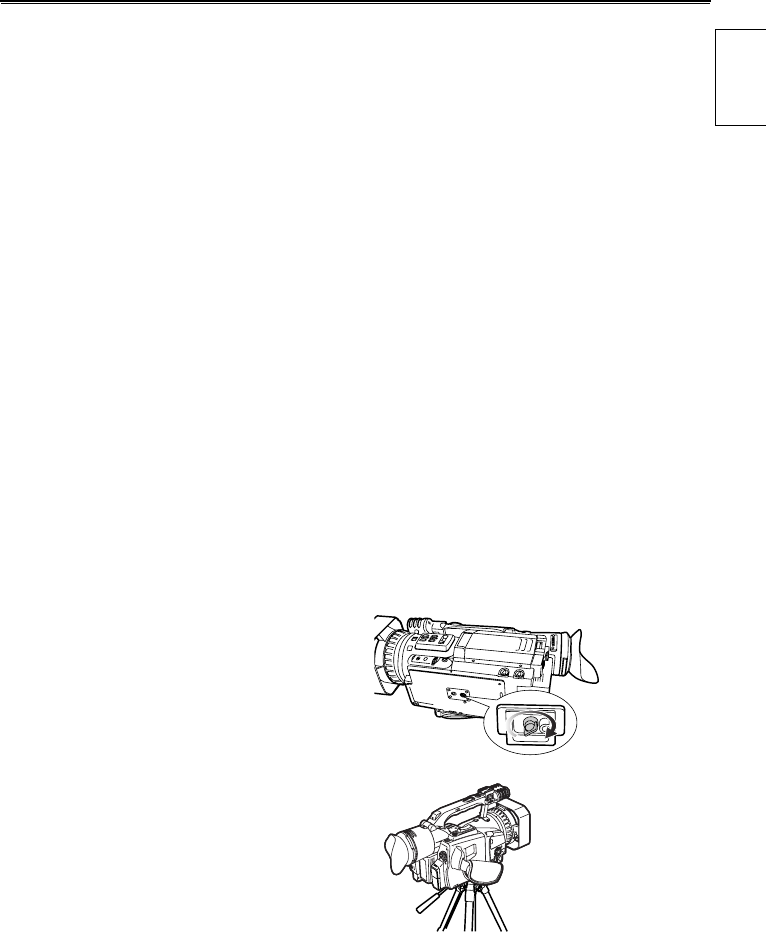
9
Battery characteristics
This camera-recorder uses a rechargeable lithium-
ion battery that uses its internal chemical reaction
to generate electrical energy. This reaction is easily
influenced by the ambient temperature and
humidity, and the battery’s effective operating time
is reduced as the temperature rises or falls. In very
low temperatures, the battery may last only 5
minutes.
Protective circuitry functions if you use the battery
where it is very hot and you will have to wait before
you can use it again.
Remove the battery after use
Completely remove the battery. (The battery
continues to be used even if you have turned the
camera off.) The battery can over discharge if you
leave it in the camera and it may become
impossible to recharge it.
Disposing of spent batteries
• The battery will become unchargeable.
Rather than throwing the battery into the garbage,
take it to a store that can assist in recycling it.
Protect the battery terminals.
Keep the battery’s terminal area free of dust and
other foreign matter.
If you accidentally drop the battery, check that the
battery and its terminals have not been damaged.
You can damage the camera and AC adapter if you
try to use or recharge a damaged battery.
Liquid crystal displays
• Images or letters can get burned onto the screen of
the LCD or viewfinder if they are displayed for a long
time, but you can fix this by leaving the camera off for
several hours.
• The liquid crystal parts are highly precise with
99.99% of the pixels effective
This leaves less than 0.01% of pixels that may not
light or may remain on all the time. These
phenomena are normal and will have no effect on the
images you shoot.
• Condensation may form if you use the camera where
temperatures fluctuate. Wipe dry with a soft, dry
cloth.
• The LCD may appear dim after immediately turning
on a cold camera, but will brighten as the camera
warms up.
Do not point the lens or viewfinder at the sun.
Doing so may damage the parts inside.
Protective caps for the connectors
Keep the protective caps fitted over any connectors
that are not being used.
Mounting the camera-recorder on a tripod
The tripod mounting hole is 5.5 mm deep. Do not
force the tripod screw beyond this depth.
You can damage the camera-recorder if you use
any screw other than 1/4-20UNC.
Attach the tripod
to the tripod
hole
Before use


















